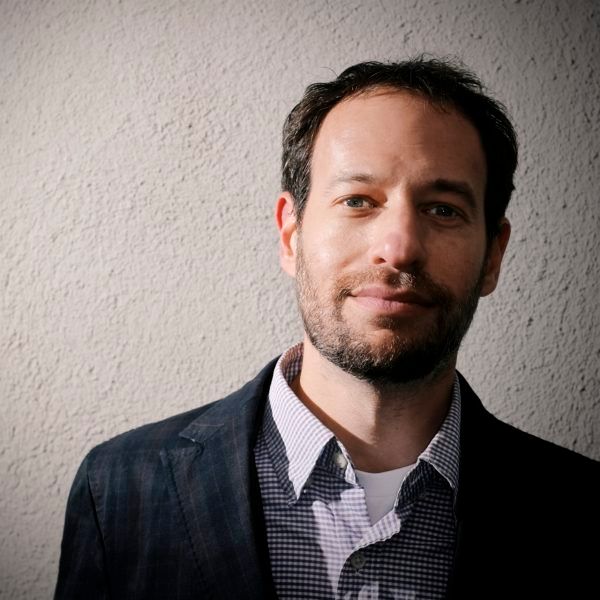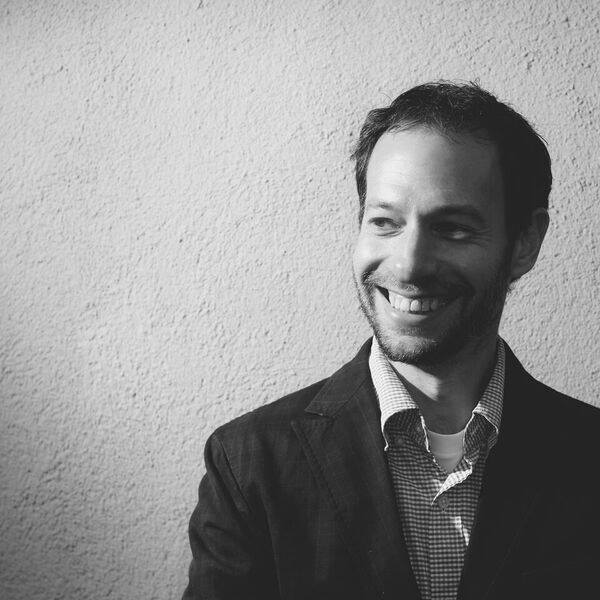
Interview: Lee Matthew Goldberg
A finalist in both the Book Pipeline and Script Pipeline competitions, Lee Matthew Goldberg has balanced his career as both a novelist and a screenwriter. Amongst a number of published works, including his Book Pipeline finalist novel The Mentor, Lee has had fiction in The Adirondack Review, Verdad Magazine, BlazeVOX, and others. Next on the horizon: founding a small publisher, Fringe Press, based in New York City.
You’ve placed as a finalist in Script Pipeline with a TV pilot, in Book Pipeline with your novel The Mentor. . . you have a range in genre and formats that not many writers have. Besides the obvious shift in technicalities, what are the marked differences in transitioning between writing novels and writing screenplays or TV scripts? Do you find any of the mediums “easier?” Does the creative development process change from one to the other?
Thanks! I’m really trying to be a double threat with writing novels and screenplays. An ideal situation would be if I could make a living switching off between the two. It also keeps me creatively invested because the approach is so different. A novel is an investment. Not that a screenplay or TV pilot isn’t, but I’ve written books that are 600 pages long and took years to complete. A screenplay aims to be around a hundred pages and a TV pilot even less, so there’s a time commitment involved with novels that you just can’t compare.
However, both are equally hard in their own way to do really well. A script has to follow more of a formula and hit certain beats at certain times so there’s less freedom. But I’ve learned a lot about novel writing through screenplays, and it’s only made my writing stronger. I only write with a detailed outline now that’s almost like a mini script without dialogue. It’s made me finish books a lot faster.
I find screenwriting easier, but I think it’s harder once you finish a project to have it developed into a film or show. There are more people and more money involved so it’s always a bigger risk. Not that it’s easy landing a publisher because your agent needs to find an editor who’s excited about your project and then has to get all the other departments on board. Recently, I had a book that an editor at a big press wanted, but the marketing team wasn’t as jazzed so they wound up passing on the project. With both novels and scripts, you’re still at the whim of others to make it happen.
In terms of creatively, I do feel a little more stifled writing scripts, but because it’s mostly dialogue with a little action, it flows faster, and I’m able to finish a draft of a project quicker. I don’t think I could just do one or the another anymore. I like tag-teaming between the two.
Why did you make the jump to writing novels to writing screenplays? Or vice versa?
I’ve always loved movies and TV just as much as I loved books. When I was in junior high, I was obsessed with Twin Peaks and would write my own version when I was bored in class called “Kapok Hills,” so my first project was actually a TV show. I started writing scripts more seriously after I published a few novels and had some flirtation with Hollywood to option the books, but nothing ever made it past an early development stage. I wanted more control where I would adapt my own novels, and then if nothing happened, at least I tried everything I could. I also find it refreshes me to switch between the two.
It’s tricky because, as a novelist, you have to let go of a lot in a script. A novel is the finished form of your creation, whereas a script is just the beginning. So that takes a while to get used to. I’m still learning how to pare down my scripts a bit so they’re not bogged down with too much description and the page is mostly white. In novels, the page is far from mostly white.
Many of your scripts, too, have been adaptations of your own books. How do you distance yourself–or do you distance yourself–from the novel version to pull off a well-paced and structurally sound screenplay? When you write a book, is there always a film or TV series version looming in the back of your mind?
Yeah, a lot of times now when I’m writing a book I’m thinking of it as a movie. For The Mentor, I was picturing Ryan Gosling as the lead when I was writing it. For my latest, The Desire Card, I was picturing Russell Crowe. I like to think of my writing as very filmic. I want to do the majority of the work for my readers in terms of imagination. These days too, there are so many outlets between film and television. There’s always an opportunity for a novel to become a film or a show. My novel Join Us was initially a script before it became a book. The same with my upcoming novel, Prey No More. Instead of writing a detailed outline, I just decided to write the script for both and then expand them as novels. I don’t think either of those books would have worked if I hadn’t done it that way. Prey No More is very action packed, and I needed to see it as a movie first before it became prose.
You definitely have to distance yourself as a novelist if you’re turning your own work into a script. You know the story better than anyone else, but that’s also a problem because it makes it harder to kill any darlings. Right now, I’m dealing with that writing the script of my novel The Mentor. But because the book came out two years ago, I’m not as close to it anymore. It’s really helped allow me to decide what from the book could be cut.
In this era where the film/TV industry is edging closer and closer to the world of literature, would it behoove novelists to think more cinematically in a sense? Or do you think that hampers their natural flow of writing?
I think it completely behooves them! First of all, advances on novels are tiny. Yeah, there are a few a year that get huge payouts, but it’s far from the norm. It just allows more potential money in a writer’s pocket. I’m starting to think of my own career as broader than I have before. I don’t want to just write books. I want to adapt to scripts, I may want to produce projects, or even direct in the future, write a play, become a publisher, etc. Each one will only help the other in terms of getting my name out there. But I’m aware that’s not for everyone. Some novelists take ten years to write one book, and that’s it. I’m not slow. I like working on multiple projects at once, so it just makes sense for me to try as many different outlets as possible.
You’re in the early stages of launching a small press, Fringe Press, and when you pitched your plan and your approach to us, it sounded phenomenal. How did that come about? And how will Fringe stand out from others?
Thank you! I am very psyched about it. It was an idea I’ve had for some time. Basically, I had a novel called Eating the Sun that was about a guy who can eat the hottest chili peppers in existence and goes around the world searching for one that will help him reach a state of enlightenment. He finds an underground society of other Chili Heads all searching for the same elusive thing. Over the years, I’ve had editors interested in it, but they couldn’t fit it into a box. It was too unique. This really pissed me off, and it’s a problem with the publishing business right now. They want safe. Tried and true formulas that they know they can sell. Mine was too much on the fringe. Hence. . . Fringe Press. I wanted to create a press focusing on books on the fringe that you couldn’t fit into a box. Like if David Lynch and Clarice Lispector had a weird baby and that baby was Fringe Press.
That being said, it was hard to imagine this on my own. I started talking with Andrew Sullivan and John Gosslee who run two very successful presses, C&R Press and Mastodon. We’re still hammering out the details, but working with people who are knowledgeable in the business end of things while I would be editor-in-chief and acquire the books seems like the ideal option. We would start with just a few titles a year as we’d let it grow. Again, it’s in the early stages, but I’m very excited and the sky’s the limit to what it can become.
It’s no secret that the majority, or close to the majority, of films and series right now are based off books, off true stories. . . . Is it wise for even the smaller publishing houses to build closer relationships to production companies? Since you’re fluent in the film and TV industry, will that be the case with Fringe Press?
Yes! Absolutely! I would love for Fringe Press to work very closely with production companies. Even though the books would be on the fringe and out there, I only want to acquire books that have the potential to be adapted for film and television. Working with Book Pipeline would be great to partner up for competitions. The winner could get a publishing contract with us and would be amazing press for Fringe. I think it definitely helps for someone knowledgeable in film and someone knowledgeable in publishing to merge in some form to create a superpower. Fringe could even become its own production company someday, you never know. . . . I’m going into this endeavor open to whatever it may bring!


Lee Matthew Goldberg is the author of the novels Slow Down, The Mentor, and The Desire Card. He has been published in multiple languages and nominated for the 2018 Prix du Polar. The second book in the Desire Card series, Prey No More, releases in 2020, along with his first sci-fi novel Orange City. His pilots and screenplays have been finalists in Script Pipeline, Stage 32, We Screenplay, the New York Screenplay, Screencraft, and the Hollywood Screenplay contests.
After graduating with an MFA from the New School, his writing has also appeared in the anthology Dirty Boulevard, The Millions, Cagibi, The Montreal Review, The Adirondack Review, The New Plains Review, Underwood Press and others. He is the co-curator of The Guerrilla Lit Reading Series. He lives in New York City.

